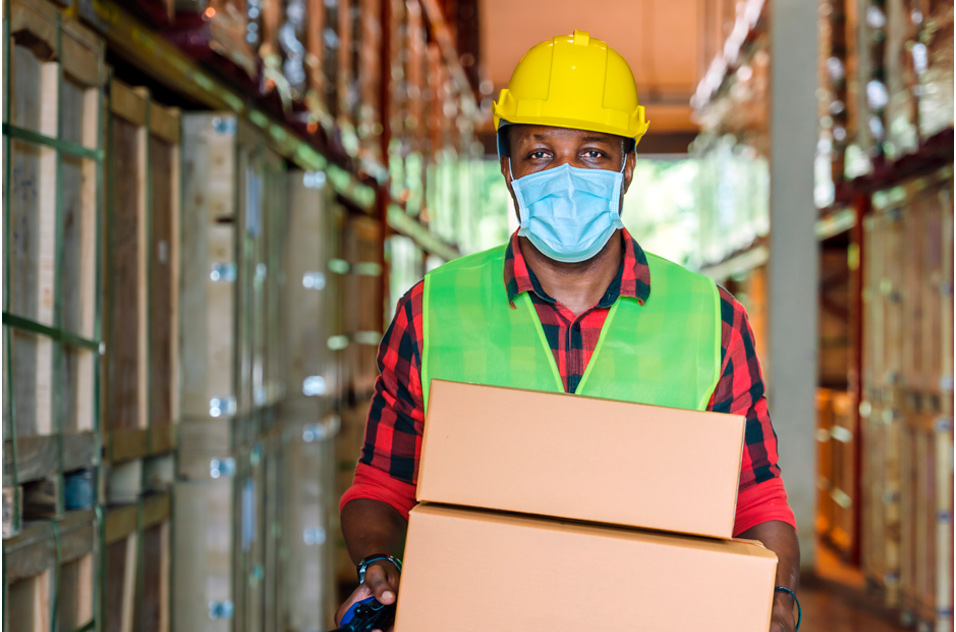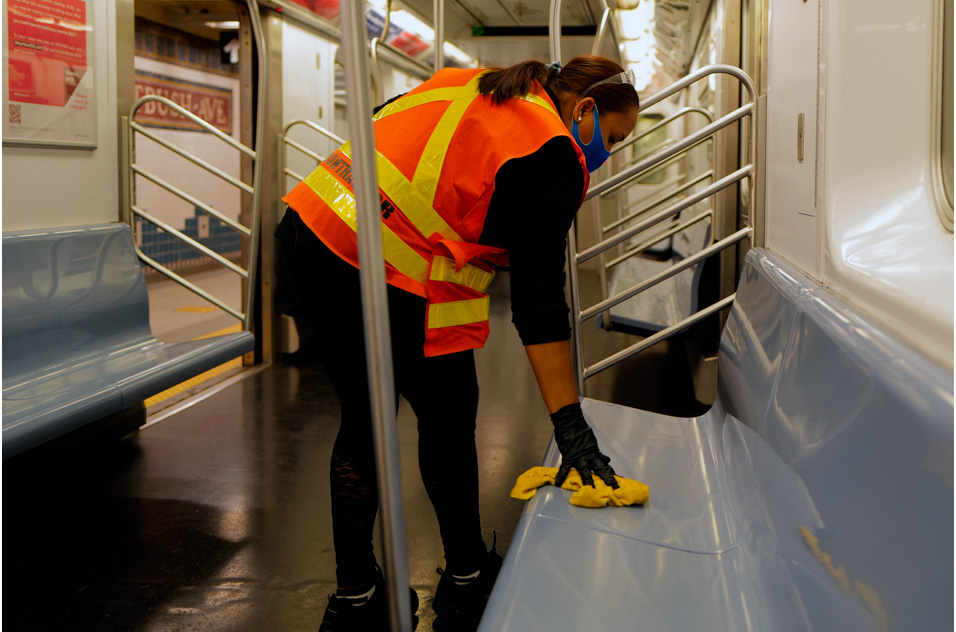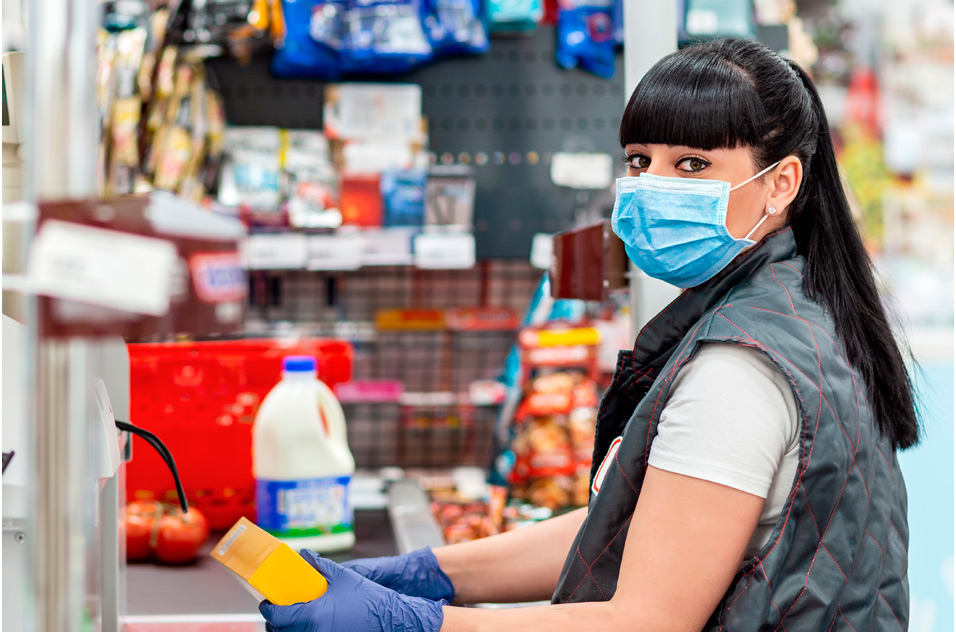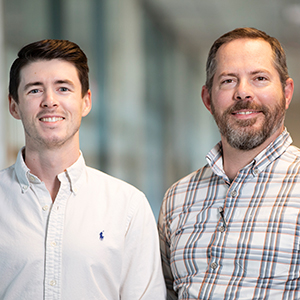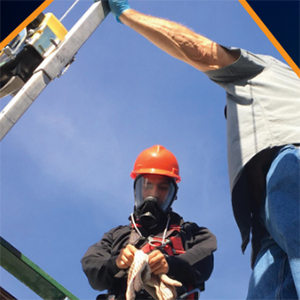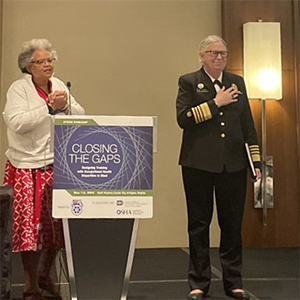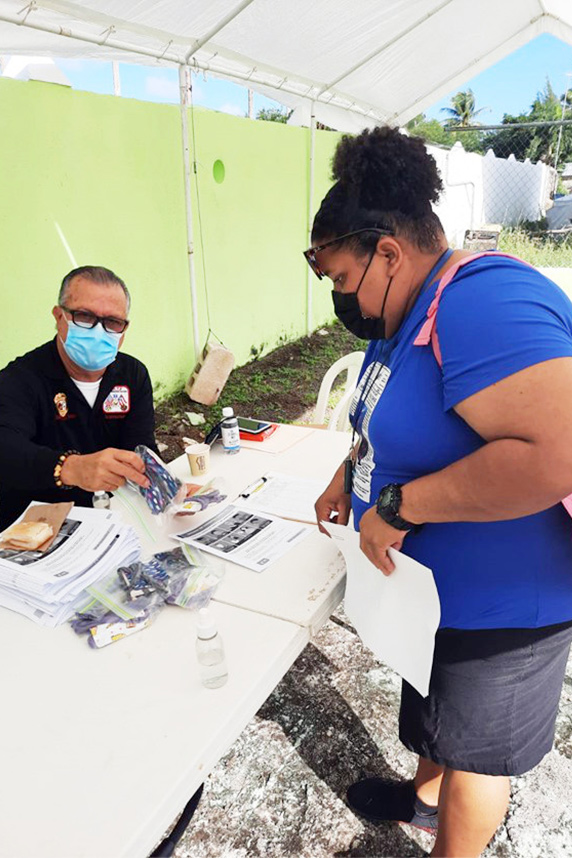 Sustainable Workplace Alliance trainers joined events in Puerto Rico to teach residents how to better protect themselves, their families, and communities during the pandemic. (Photo courtesy of SWA)
Sustainable Workplace Alliance trainers joined events in Puerto Rico to teach residents how to better protect themselves, their families, and communities during the pandemic. (Photo courtesy of SWA)In April, NIEHS Worker Training Program (WTP) awardees began work on COVID-19 recovery centers to promote health, safety, and recovery training for essential workers and their communities.
Since the beginning of the pandemic, health care and other essential workers have faced significant risk of exposure to SARS-CoV-2, the virus responsible for COVID-19. According to the Centers for Disease Control and Prevention (CDC), risk for COVID-19, and its later health outcomes, is greater in disadvantaged communities that face social inequities. The agency noted that factors such as discrimination, occupation, and income can play a role in disease burden.
Supported by funding under the Coronavirus Preparedness and Response Supplemental Appropriations Act, 2020, the centers are led by WTP awardees across the nation who will partner with local businesses, community organizations, and worker centers. Together, they will assess COVID-19 health risks, train essential workers, and coordinate resources needed to reduce disease transmission and promote recovery in disadvantaged communities.
Assessing risk
One task of the recovery centers is assessing COVID-19 risk in workplaces and communities. To help reduce workplace transmission of COVID-19, the Prevention, Preparedness, and Response Consortium will refine a tool that calculates site-specific risk by job classification in El Paso, Texas. The consortium will also work with business owners to create a transmission reduction plan for workers.
 As WTP acting director, Sharon Beard oversees the COVID-19 recovery centers and other grant activities. (Photo courtesy of Steve McCaw / NIEHS)
As WTP acting director, Sharon Beard oversees the COVID-19 recovery centers and other grant activities. (Photo courtesy of Steve McCaw / NIEHS)COVID-19 testing and contact tracing activities are also key to risk assessment. Awardees such as the Western Region Universities Consortium will provide technical assistance with testing and contact tracing for communities and essential workers in California, Arizona, and Washington.
Training and education
Culturally appropriate health and safety training is also needed to reduce the spread of COVID-19. Through the recovery centers, WTP awardees will deliver COVID-19 training in multiple languages on topics such as use of personal protective equipment.
This approach is especially important for immigrant workers, such as those served by the New Jersey/New York Hazardous Materials Worker Training Center (NJ/NY Training Center) and Sustainable Workplace Alliance (SWA). The NJ/NY Training Center will target communities in New Jersey, New York, and Puerto Rico, and SWA will target communities in Florida and Puerto Rico.
To expand its reach in Connecticut and Massachusetts, The New England Consortium-Civil Service Employees Association will provide educational materials about COVID-19 testing, vaccination, and infection control in Spanish, Albanian, Portuguese Creole, and French Creole.
The International Chemical Workers Union Council Center for Worker Health and Safety Education will deliver training using bilingual trainers and a range of COVID-19 tools developed by the WTP National Clearinghouse for Worker Safety and Health Training(https://tools.niehs.nih.gov/wetp/).
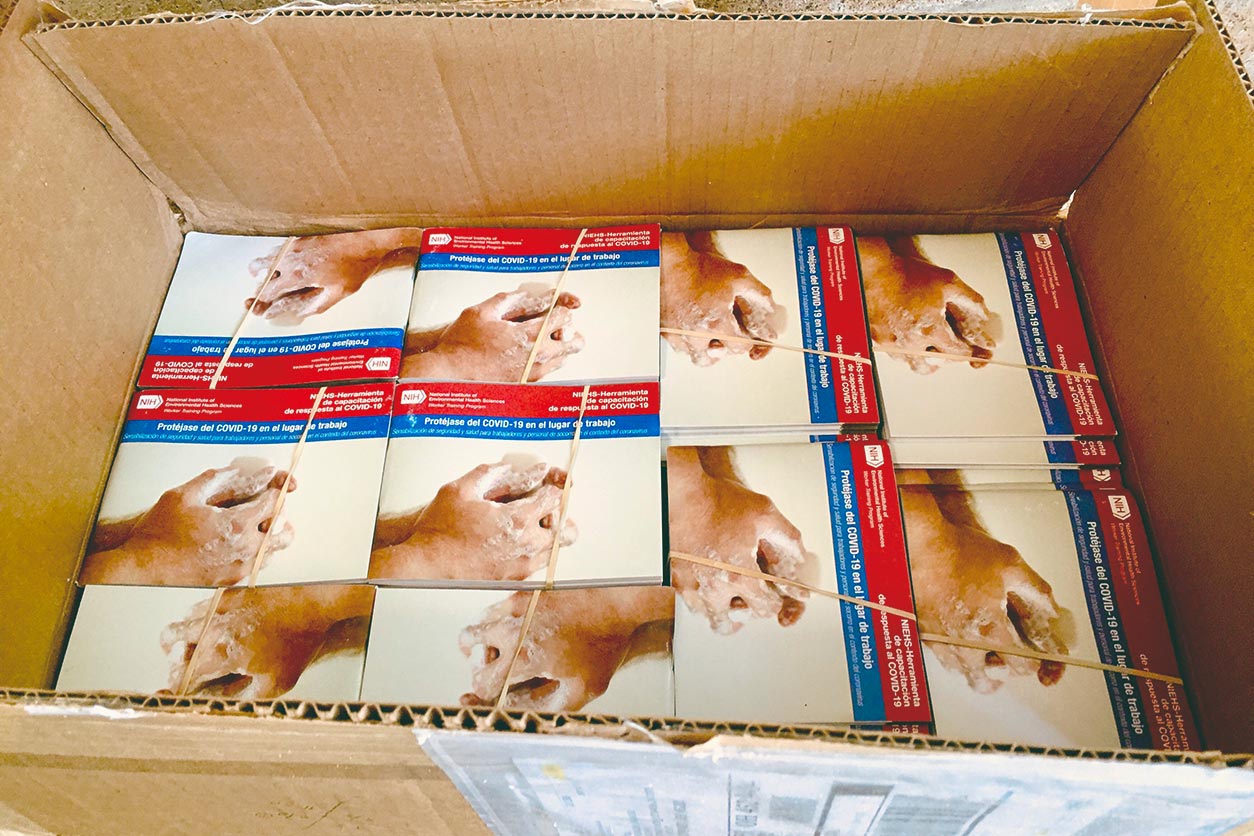 WTP awardees will distribute resources such as the NIEHS Protecting Yourself from COVID-19 in the Workplace(https://tools.niehs.nih.gov/wetp/covid19worker/) booklets, available in multiple languages. (Photo courtesy of Pete Raynor / Midwest Consortium for Hazardous Waste Worker Training)
WTP awardees will distribute resources such as the NIEHS Protecting Yourself from COVID-19 in the Workplace(https://tools.niehs.nih.gov/wetp/covid19worker/) booklets, available in multiple languages. (Photo courtesy of Pete Raynor / Midwest Consortium for Hazardous Waste Worker Training)Promoting resilience and recovery
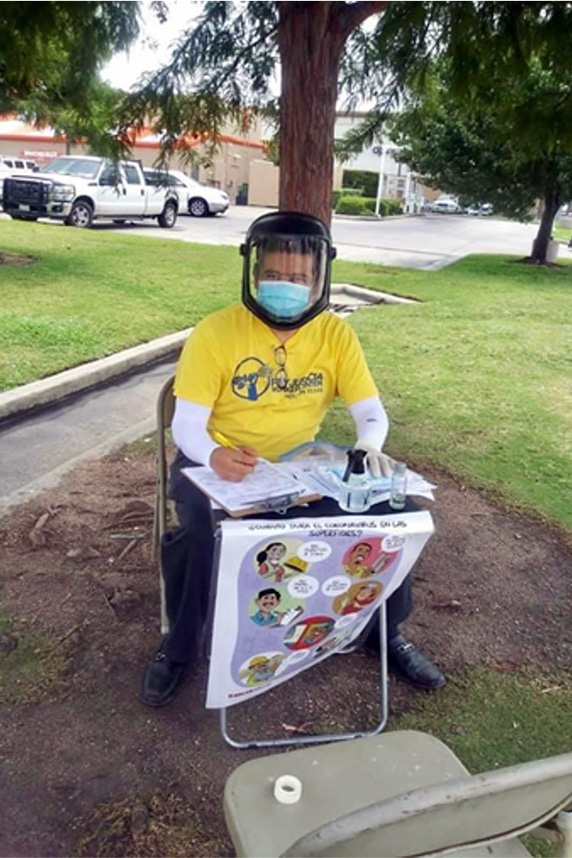 A trainer with the National Day Laborer Organizing Network, an SCEO partner, conducted outreach in Texas during the pandemic. (Photo courtesy of SCEO)
A trainer with the National Day Laborer Organizing Network, an SCEO partner, conducted outreach in Texas during the pandemic. (Photo courtesy of SCEO)WTP awardees will promote resilience and recovery efforts at each center by connecting communities to social services, counseling, peer support, and employment assistance resources. Awardees like the Historically Black Colleges and Universities Consortium will provide many of these wraparound services to address COVID-19 disparities in high-risk communities along the Gulf Coast.
The Steelworkers Charitable Educational Organization (SCEO) Tony Mazzocchi Center will provide similar services for Latinx and African American workers and their families in New York, New Jersey, and Alabama.
Awardees will also make referrals for basic needs, such as housing and food distribution, and help increase community access to vaccinations.
(Kenda Freeman is a research and communication specialist for MDB, Inc., a contractor for the NIEHS Division of Extramural Research and Training.)





